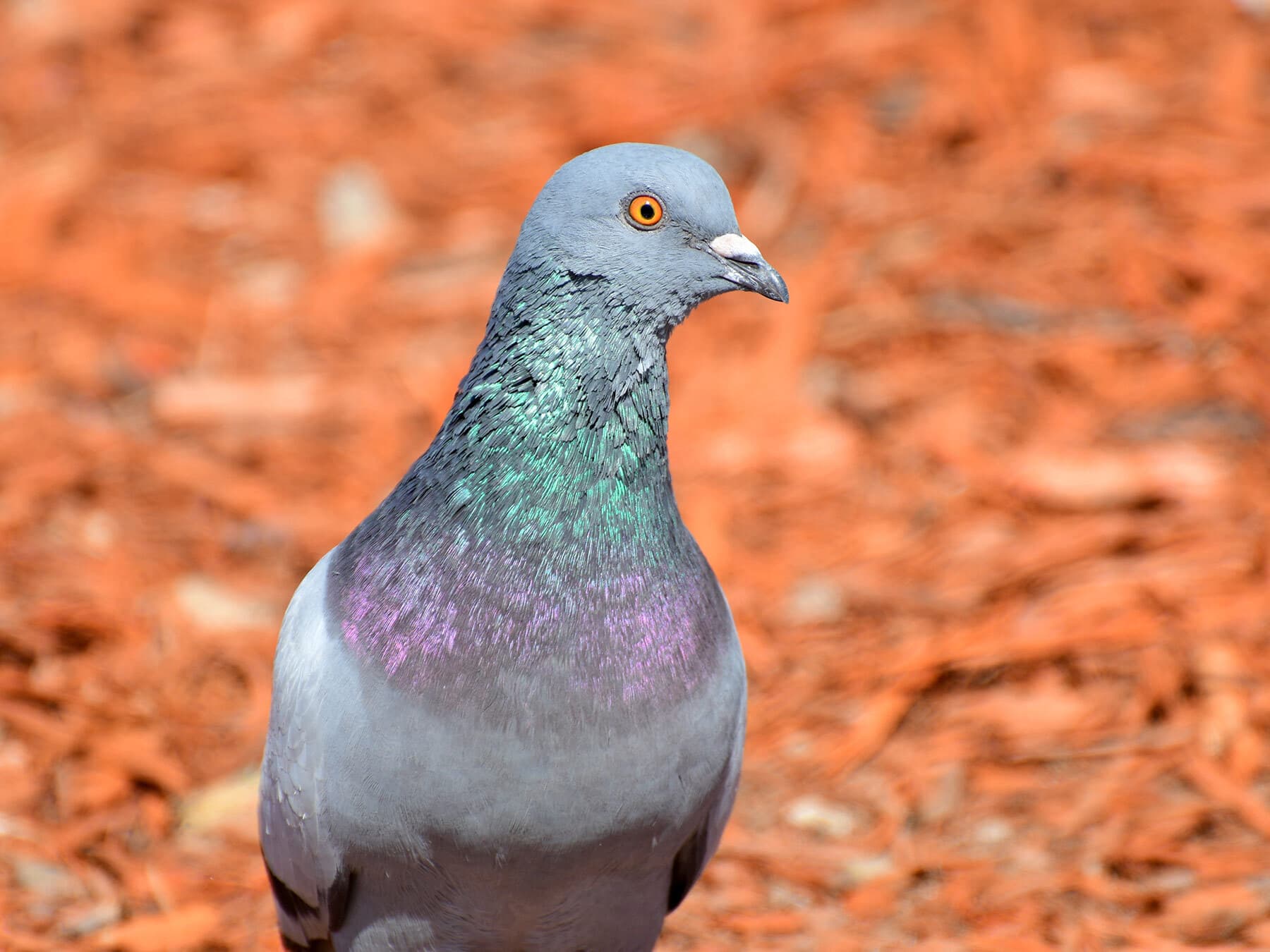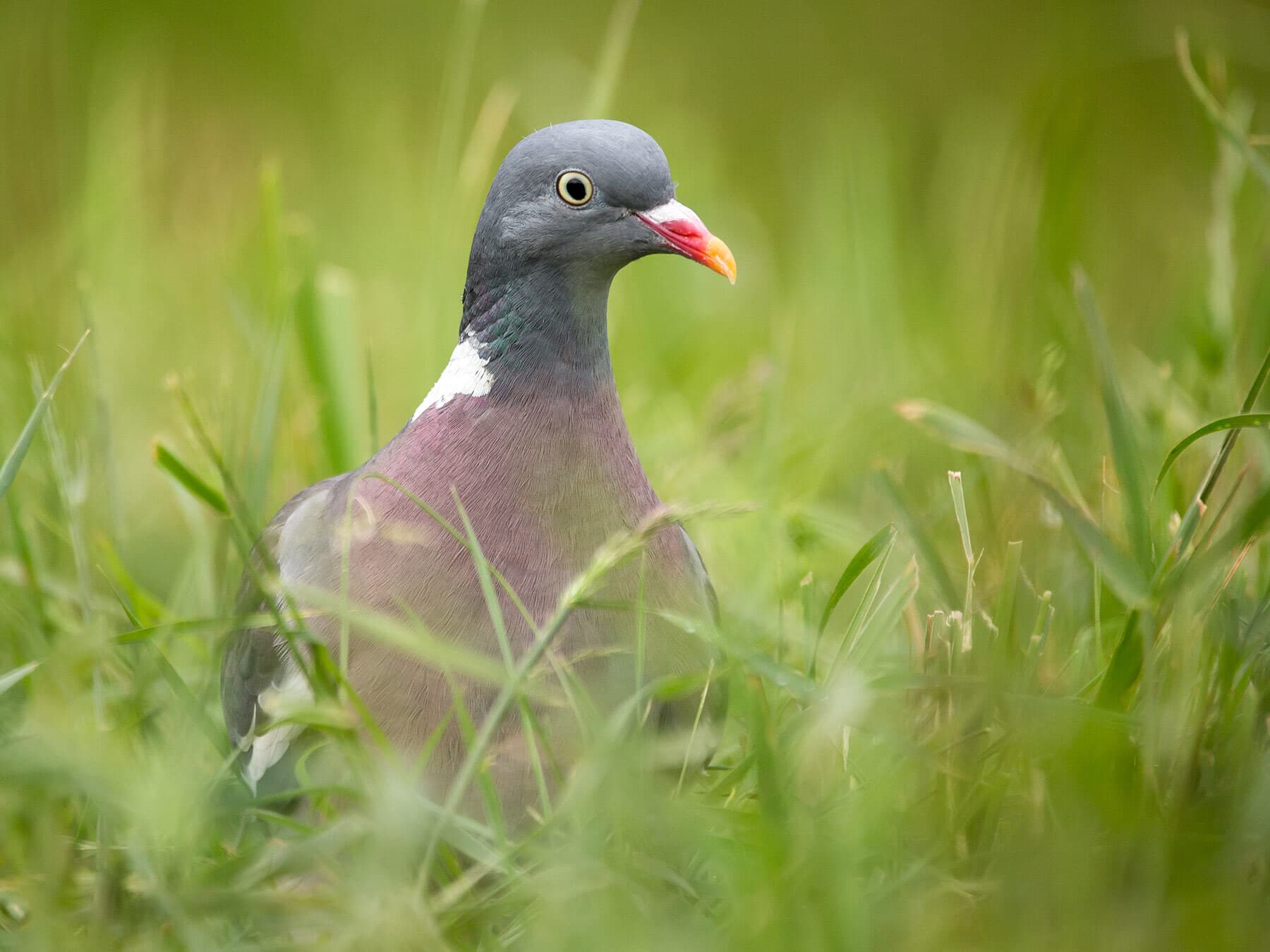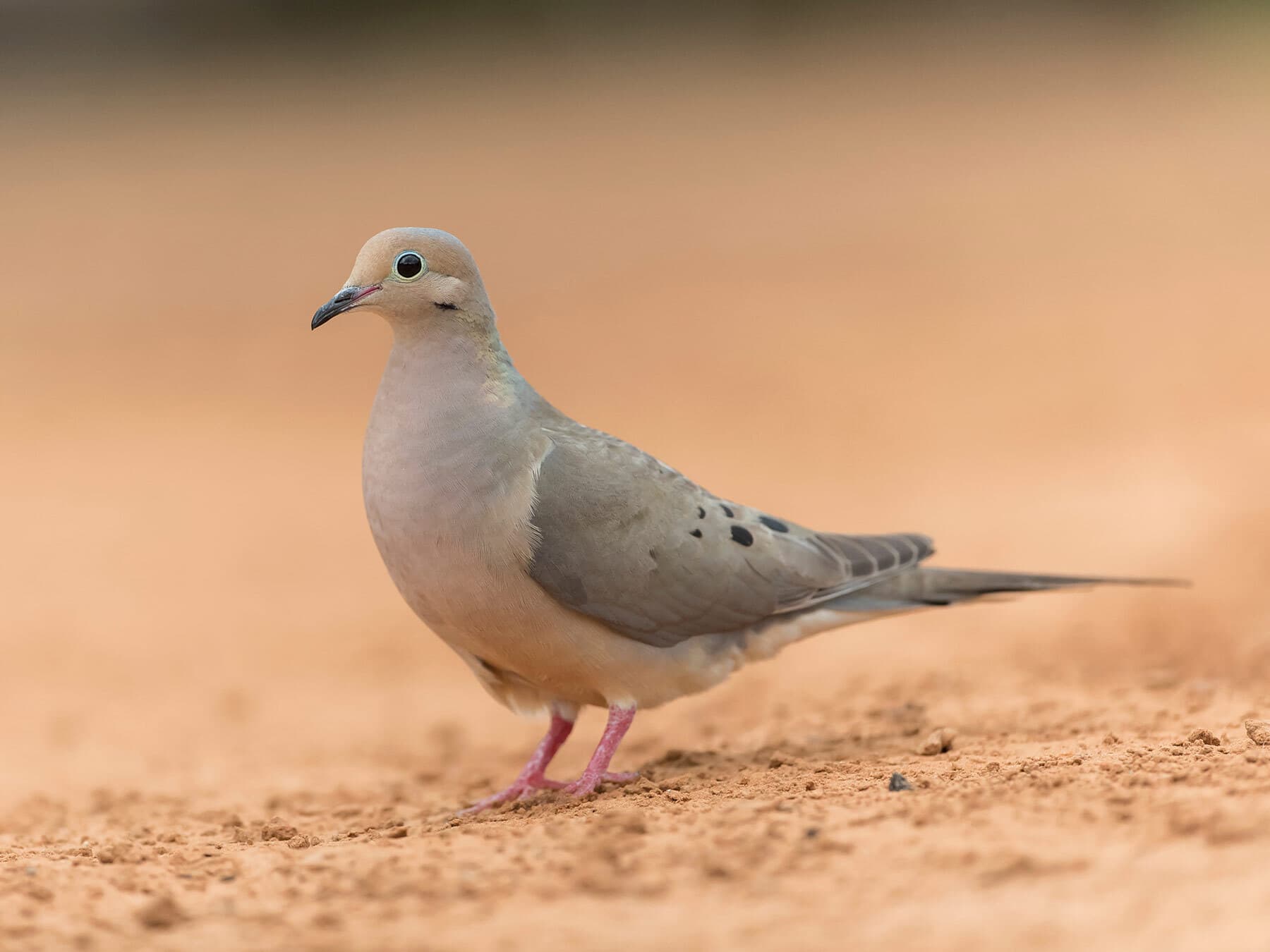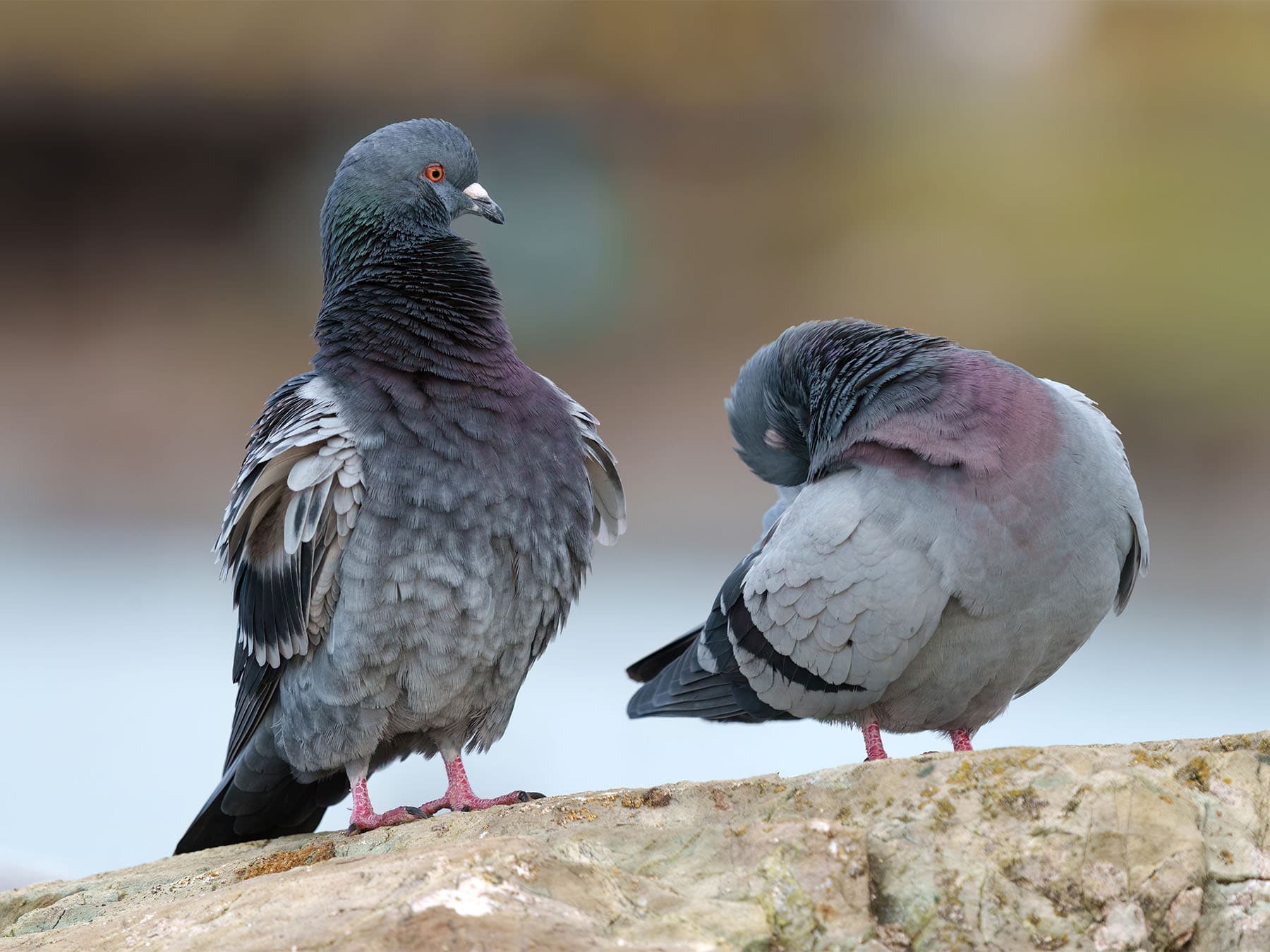
From the Journal
How Long Do Pigeons Live? Insights into Their Life and Longevity
- Captivity vs. Wild: Pigeons can live over 20 years in captivity with good care, but wild pigeons average a lifespan of 2-3 years, with a maximum of about 6 years.
- Factors Influencing Longevity: Predation (from cats, birds of prey, etc.), human interaction, diseases (like paramyxovirus and canker), and diet play key roles in determining a pigeon's lifespan.
- Comparison to Other Birds: Pigeons have lifespans similar to many small and medium-sized birds but generally live longer than gamebirds like quails.
- Care for Captive Pigeons: Providing a spacious environment, a balanced diet, regular cleaning, and medical care can significantly extend the life of domesticated pigeons.
Whether we live out in the country or the heart of the city, most people will see Doves and Pigeons every day. Have you ever wondered how long they live?
The Feral Pigeon can live for over twenty years in captivity if given good care, and the oldest birds have even survived for more than three decades. However, wild birds have a much shorter lifespan, with a maximum of about six years and an average of just two to three years.
Ultimately, a Pigeon's lifespan is determined by a range of different factors, including diseases, predation, and access to food, water, and shelter.
There’s much more to learn about the Pigeon lifespan. Read along with us as we unpack what affects their lifespan and what can be done to provide captive birds with the best chance of a long and healthy life.
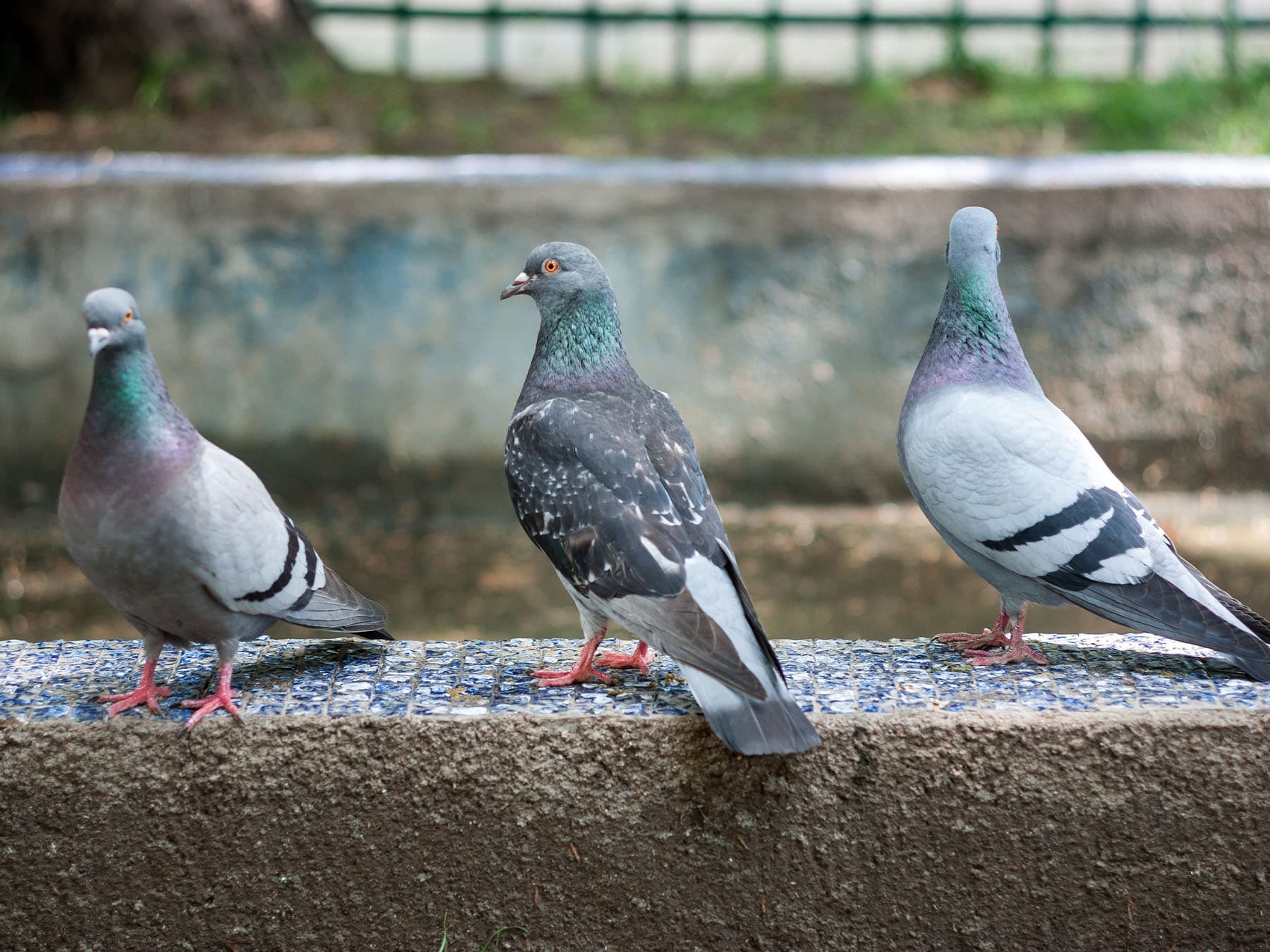
Factors Influencing Pigeon Longevity
A long lifespan depends on many different factors, including some good old luck. Continue reading to learn about the major factors that influence Pigeon longevity.
Natural Predators
Pigeons have a variety of different potential predators, depending on their species and habitat. Wild Pigeons probably face a greater diversity of potential predators, but even Feral Pigeons in city centers need to keep their wits about them with predators like Domestic Cats and Peregrine Falcons around.
Typical Pigeon predators include:
- Carnivorous mammals like cats, foxes, and mustelids
- Birds of prey such as Falcons, Goshawks, and other Accipiters
- Reptiles like pythons and alligators
- Even fish like the monstrous Wels Catfish are known to hunt drinking Pigeons
Predators feed on Pigeons at all stages of their lifecycle, including eggs, babies, and adults. Swift birds of prey can catch even the healthiest adult Pigeons, although old, injured, or sick birds are most at risk.
Human Interaction
Most species of Pigeon prefer wild natural habitats, unchanged by human development, and some have even gone extinct due to habitat destruction, introduced predators, and overhunting by man.
However, the Rock Dove (Columba livia) has clearly benefited from urban development and has successfully populated urban areas worldwide. Not only have we introduced them to major cities on every continent, but our high-rise buildings simulate their natural nesting and roosting habitat.
Many adaptable Pigeon and Dove species benefit from farming by cashing in on abundant food sources like grain and animal feeds. Even our uneaten food scraps provide a great food source for urban Pigeons.
With readily available food sources and nesting sites, you might think the average Pigeon would live to a grand old age. However, there is plenty of competition between the birds, and dangers like pollution, pest control, cars, and trains all take their toll.
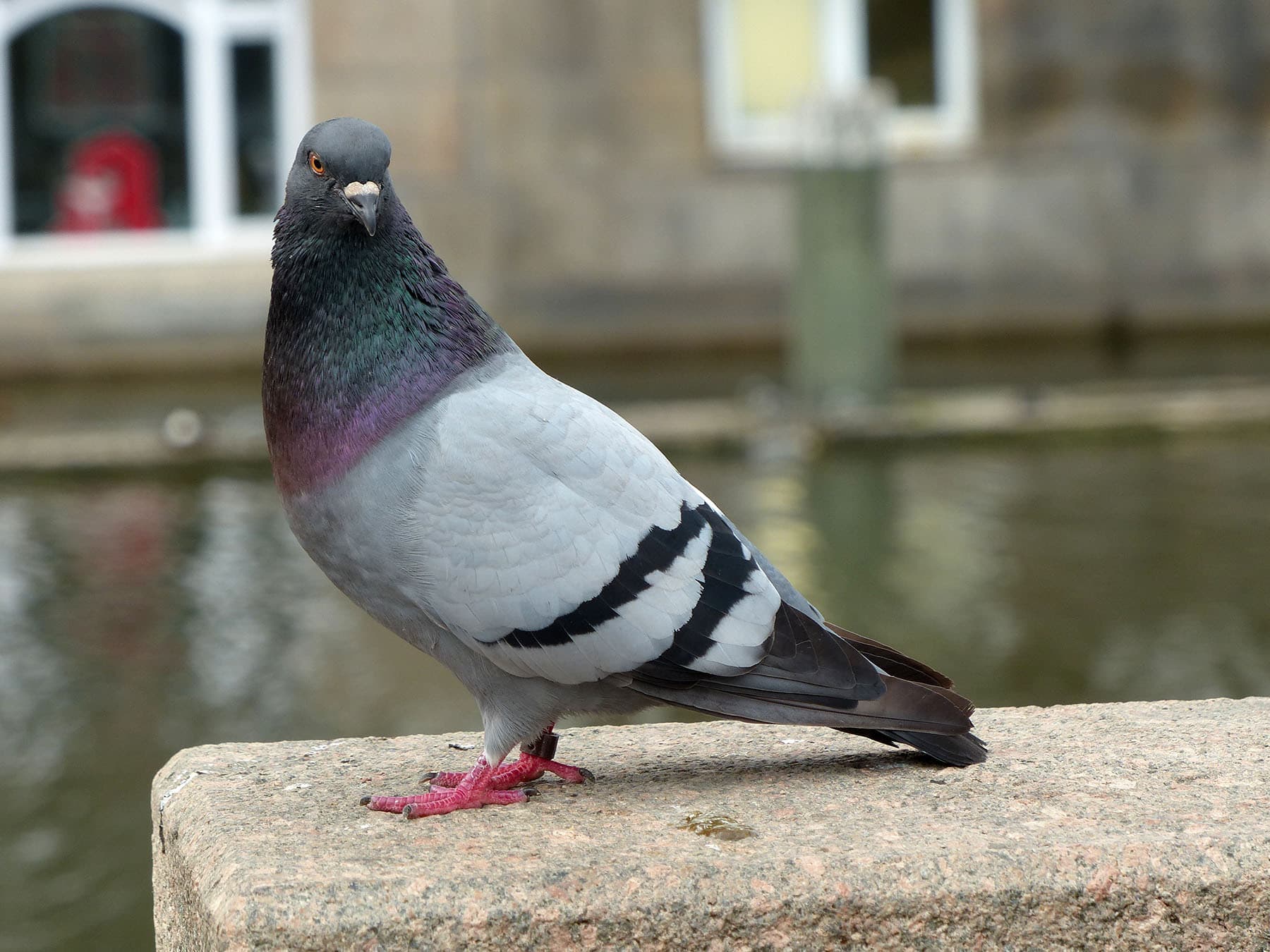
Got a photo of a bird you can't identify?
Upload a photo and find out what it is in seconds — no account needed
Identify a BirdDiseases and Health Issues
Pigeons are susceptible to many diseases and parasites that can shorten their lives. The following conditions are often reported from Feral and domestic Pigeons:
Mite infestation
The red mite, or poultry red mite (Dermanyssus gallinae), and several other parasitic mites affect Pigeons and their chicks.
Paramyxovirus
Often known as PMV, paramyxovirus is a common viral infection in Pigeons that can be highly infectious in lofts. This virus causes twisting of the neck and can cause death in just a few days.
Paratyphoid
Also known as salmonella, this common infection is caused by the bacteria Salmonella enterica. This infection can cause mortality but is often controlled through vaccination in Pigeon lofts. While vaccination does not necessarily eradicate paratyphoid in Pigeons, it does reduce the severity of symptoms.
Canker
Pigeon Canker is a very common disease caused by microscopic protozoan parasites of the Trichomonas genus. This infection causes lesions in the mouth, crop, esophagus, and pharynx, which grow to cause starvation or suffocation.
Diet
A poor diet can reduce a Pigeon's lifespan, particularly in captive birds that can’t regulate their own diet and seek out various food items. Too much or too little food causes obesity or starvation, while a poor diet can starve the bird of essential nutrients, leaving it vulnerable to infections.
All of the following diet components must be met for a bird to live a long and healthy life:
- Carbohydrates
- Lipids
- Proteins
- Vitamins and minerals
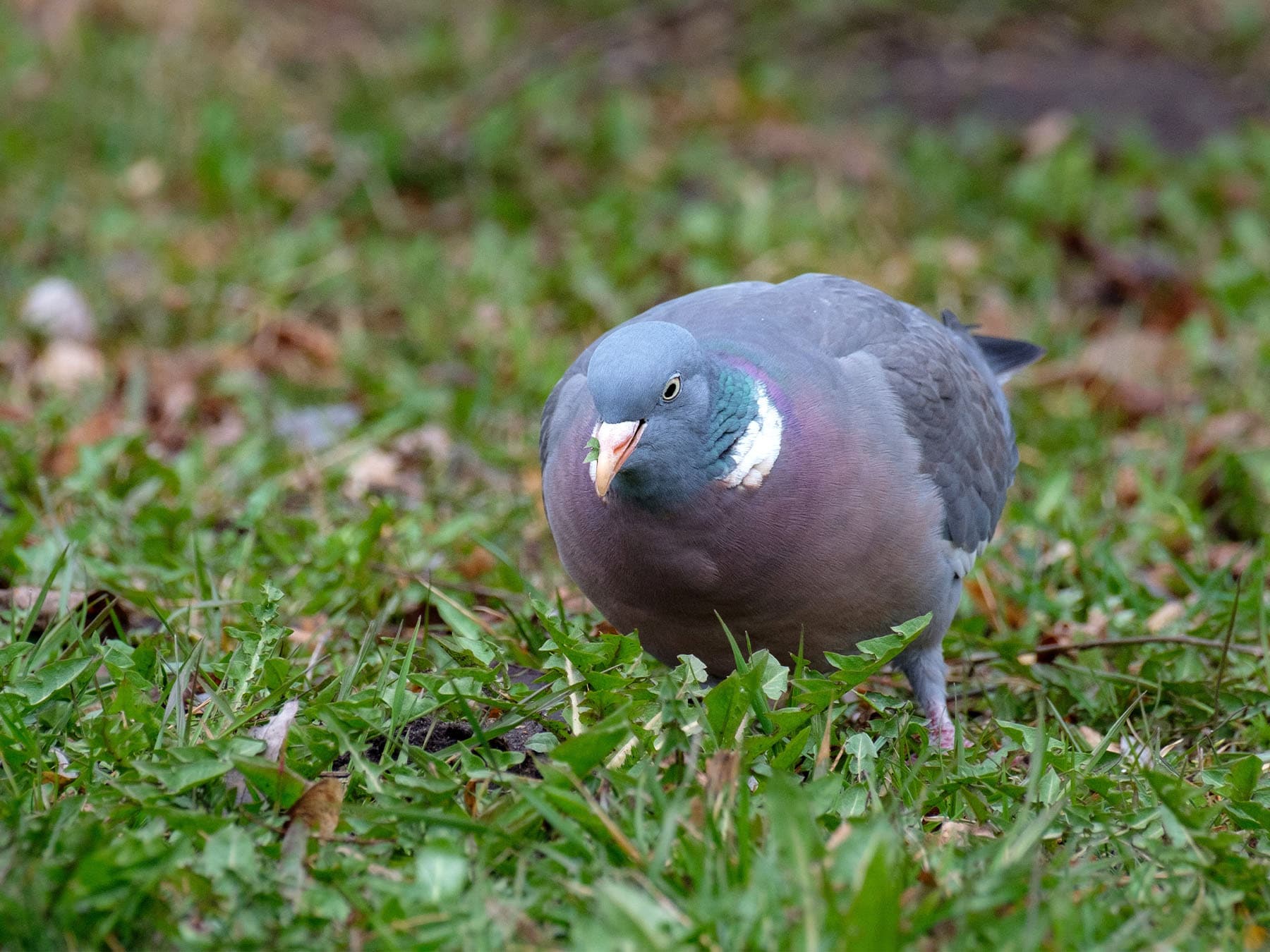
Comparing Lifespans: Pigeons vs Other Birds
Birds can have surprisingly long lifespans, although their longevity varies greatly between species. Large seabirds like Albatrosses and large psittacines (Parrot family) can reach extraordinary ages of 80 years, while some small songbirds have maximum recorded lifespans of just three years.
Pigeons have a similar lifespan to most small and medium-sized birds. They tend to live longer than similar-sized gamebirds like Quails and Bobwhites but fall well short of the average Gull lifespan.
Wild vs. Pet Pigeon Lifespan Differences
Wild Pigeons have an average lifespan of just two to three years, while captive birds often live ten to fifteen years with good care. Generally speaking, captive birds live much longer than their wild counterparts because they live pretty stress-free lives with easy access to food, medical care, and protection from predators.
Injured or ill wild birds soon perish if they can’t feed themselves. While captive birds are also susceptible to a range of illnesses, they are often easy to treat, and with easy access to food, the birds have a good chance of recovery.
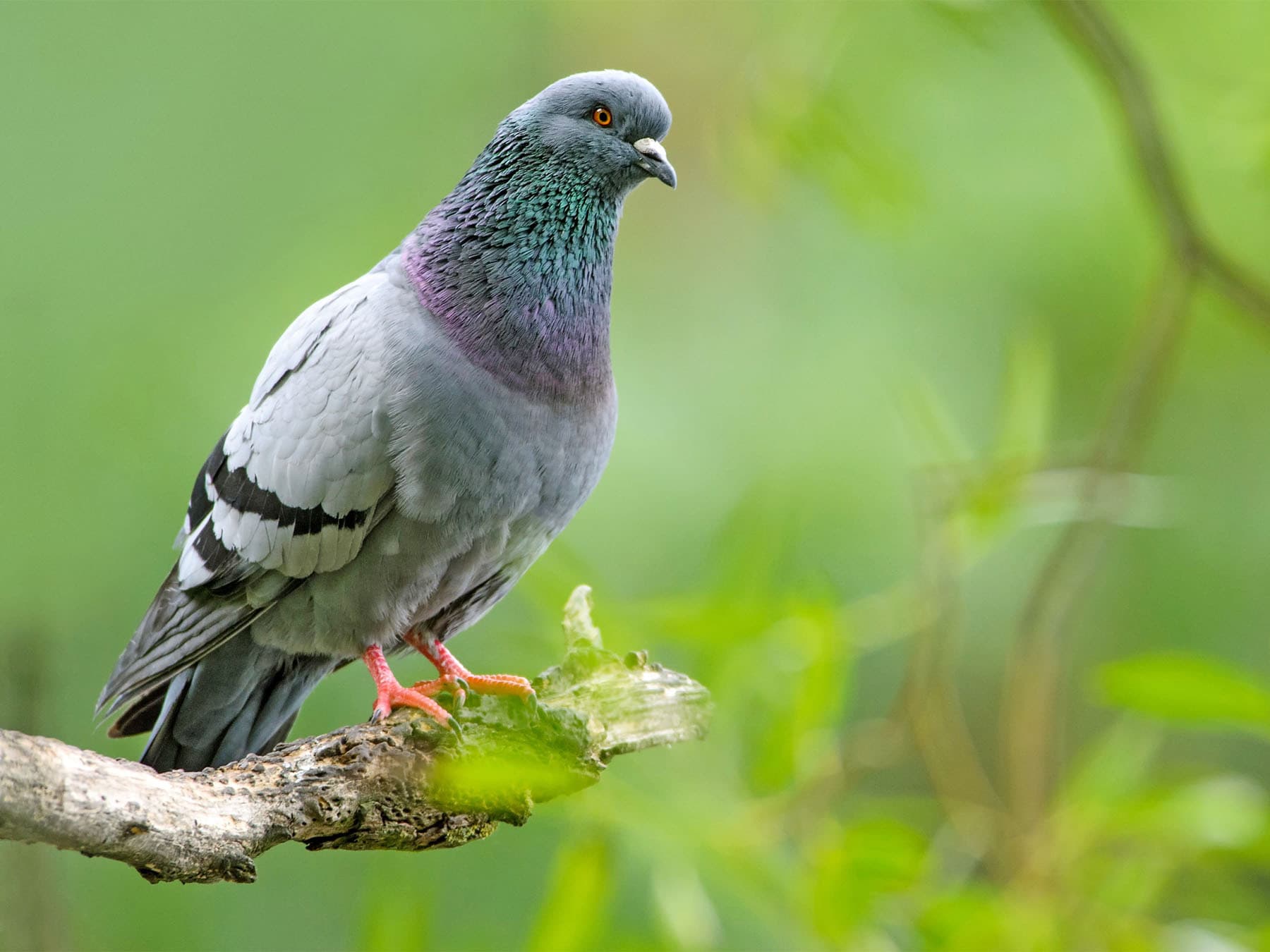
How to Ensure a Longer Life for Domesticated Pigeons
Captive Pigeons rely on their carer to provide adequate shelter, a healthy diet, and sanitary living conditions. While Pigeon racing is a common motivation for keeping captive birds, keepers should accept that their birds are vulnerable to attack from common predators like Falcons and Hawks.
Let’s take a look at some simple tips for keeping your birds healthy and increasing their lifespan.
Enclosure
Provide plenty of space. Keeping your Pigeon in a cramped cage will limit its lifespan. The ideal aviary is several feet tall and wide to allow your bird plenty of room for exercise.
Do not keep your Pigeon in a particularly hot, cold, damp, or windy environment.
Spot clean your Pigeon’s enclosure every day, and clean it thoroughly at least once each week.
Diet
- Feed your Pigeon a high-quality commercial Pigeon food, supplemented with occasional treats of bird-safe vegetables like spinach. Read this in-depth guide for much more information on the Pigeon diet.
- Keep their food cool, dry, and sealed to prevent contamination from rodents and other pests.
- Pigeons need access to fresh water at all times for drinking and bathing. Replace their water twice daily and disinfect the containers regularly to control bacteria and fungi.
Medication
- Consider vaccinating your Pigeons for common illnesses like paramyxovirus (PMV) and Paratyphoid (Salmonella).
- Consult a veterinarian if your bird is showing signs of ill health.
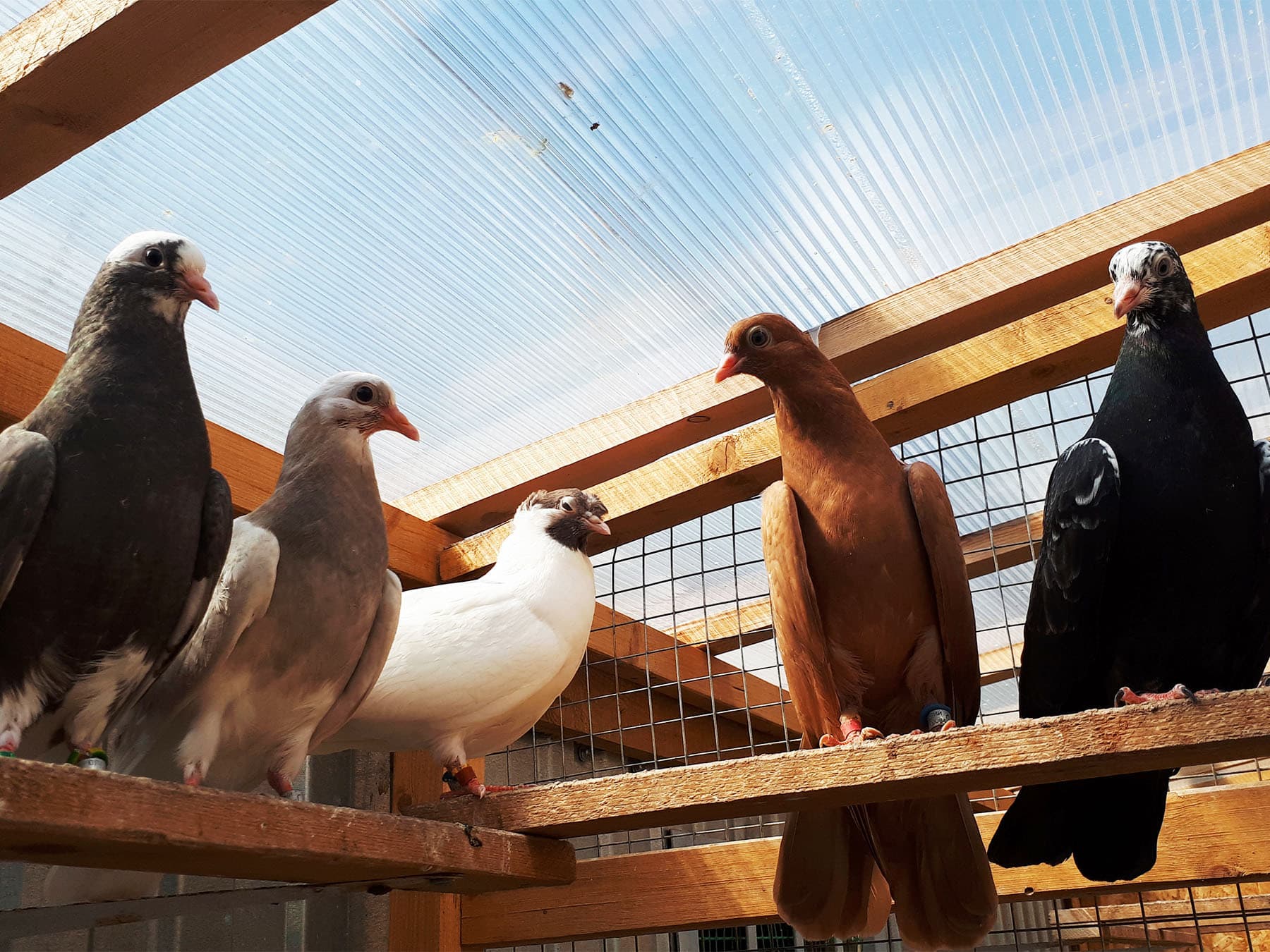
The Oldest Recorded Pigeon
While many Pigeon keepers report lifespans of over 15 years, the record goes to an English bird named Peace. This retired racing Pigeon was an incredible 24-year-old in 2013, highlighting the potential age these birds can reach with a healthy diet and good care.
The Role of Conservation in Pigeon Lifespan
Conserving natural habitats can have a real benefit to wild Pigeon populations and individuals, although it does little to reduce the chance of predation and other natural mortality events.
Little is done to conserve Feral Pigeons, partly because they are non-native in North America and across most of their modern range. However, improving air quality and reducing litter, toxins, and pollutants can certainly benefit Pigeons and other biodiversity that share our urban environments.
FAQs
How can I tell the age of a Pigeon?
Unfortunately, you can’t really tell the age of an adult Pigeon just by looking at it or examining it. The best way to keep track of the ages of captive birds is to band them and keep clear records of all your birds.
Can a Pigeon live for twenty years?
Some Pigeons can survive for twenty years in captivity. However, they require excellent health care, housing, diet, and sanitation if they are to survive this long. Wild Pigeons rarely (if ever) reach such impressive ages.
Are city Pigeons and countryside Pigeons different in terms of lifespan?
Whether out in the countryside or living in a busy city center, Pigeons are exposed to similar risk factors. Their lives may be cut short by disease, food shortages, extreme weather, and predators in both environments.
Identify Any Bird Instantly
- Upload a photo from your phone or camera
- Get an instant AI identification
- Ask follow-up questions about the bird
Monthly Birds in Your Area
- Personalised for your location
- Seasonal tips and garden advice
- Updated every month with new species
